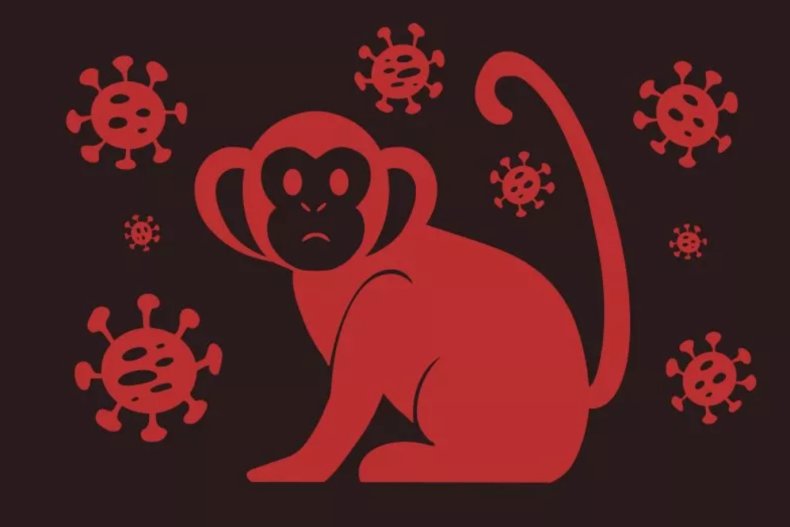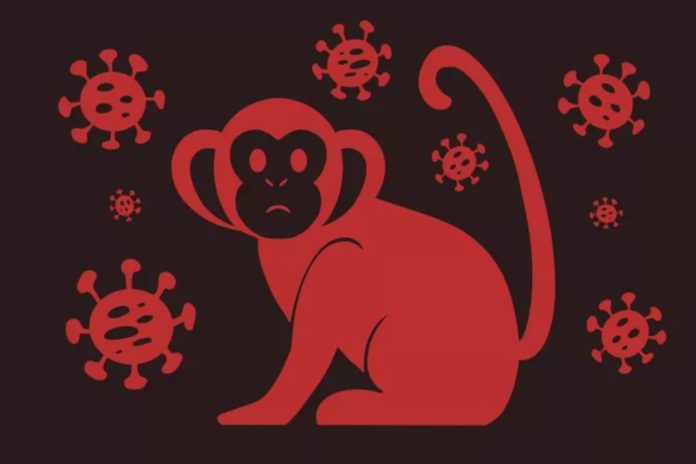A spike in monkeypox cases around the world prompted the World Health Organization (WHO) to announce a major alert about the disease, while spreading concerns among many who rushed to get the vaccine. Now, universities are once again facing the challenge of preparing students for potential campus outbreaks just as some reeled out of the COVID-19 pandemic.
WHO on Saturday declared monkeypox a “public health emergency of international concern” as it continues to spread worldwide with over 21,100 confirmed cases reported globally as of Thursday, according to the U.S. Centers for Disease Control and Prevention (CDC).
Newsweek spoke with health experts who warned that outbreaks could happen on college campuses as universities gear up for the new academic year next month. However, they noted a few steps campuses could take as precautionary measures in response to monkeypox risks.
What Is Monkeypox?
Monkeypox spreads through direct contact with the infectious rash or body fluids, prolonged face-to-face contact, touching contaminated surfaces and contact with infected animals. The symptoms include fever, headache, body aches, swollen lymph nodes, chills, exhaustion, respiratory symptoms like a sore throat or cough, and a rash that can look like pimples or blisters, according to the CDC.
WHO Director-General Tedros Adhanom Ghebreyesus also noted that the current outbreak around the world is “concentrated among men who have sex with men, especially those who have multiple partners.”
However, Jonathan Temte, the associate dean for public health at the University of Wisconsin School of Medicine and Public Health, warned against having “prejudicial approaches” when addressing monkeypox risks to avoid creating stigma around the disease.
“Monkeypox doesn’t care if you’re gay, straight, trans. It doesn’t matter. People are susceptible,” he said in an interview with the American Academy of Family Physicians Foundation earlier this month. “It is most common right now in the gay community, in men who have sex with men, simply because this is where things emerge.”
“Accept the fact that this is a transmittable disease that requires skin-to-skin contact and sometimes closer contact by way of large respiratory drops,” he added.
Can Monkeypox Spread Across Campus?
Jay Varma, a Population Health Sciences professor at Weill Cornell Medical College, told Newsweek on Friday that there is a risk that monkeypox could cause outbreaks on campuses.
“One pathway is through the same social networks in which it is spreading now—the sexual networks of gay men. Another pathway, of course, is through close skin-to-skin contact in places such as athletic teams, gyms, and theater groups,” said Varma, an expert on the prevention and control of diseases.
Similarly, Temte told Newsweek that “there is always an enhanced risk of monkeypox spread” due to the transmissible nature of the disease, among other factors.
Though most experts who spoke with Newsweek about monkeypox somewhat agreed that college campuses could be at risk of having outbreaks among students, Gary Kobinger, director at the Galveston National Laboratory, disagreed with this possibility.
“This is very unlikely in the current environment. Currently, the large majority of cases are from intimate relationships. While classmates can spend hours together in classrooms and other educational activities, the nature of the contacts are not conductive to MPX [monkeypox] transmission,” he told Newsweek on Friday.

CAELESTISS/GETTY
How Can Universities Address Monkeypox Risks?
Communication is one of the first steps that universities should take as they prepare to welcome students next month, according to health experts, including talking with students about the risks and how to mitigate them through informational sessions and social media. Other steps are also recommended for preparation in case of an outbreak or dealing with suspected cases.
Temte said that students should know about the symptoms, the need for early detection, prevention, testing and isolation, among other related topics. Meanwhile, Amesh Adalja, a senior scholar at Johns Hopkins Center for Health Security, told Newsweek that universities should have “ways to link high-risk students to vaccination, an agreement between student health and laboratories to facilitate testing, an ability to access TPOXX [antiviral medication] if needed, and designated rooms for infected individuals to isolate in.”
Meanwhile, Varma said that universities will need to use the same resources they used during COVID-19 to track cases on campuses and trace contacts of cases. Health experts also said that public health departments should be involved as soon as possible in case of outbreaks or suspected cases.
Temte added that students who were potentially exposed to monkeypox need to be screened for an evaluation of their travel history and risk behavior, among other aspects.
“[Universities] should be proactive and have a multifaceted plan of awareness, vaccination, treatment, and isolation ready to execute before cases appear,” said Adalja.








